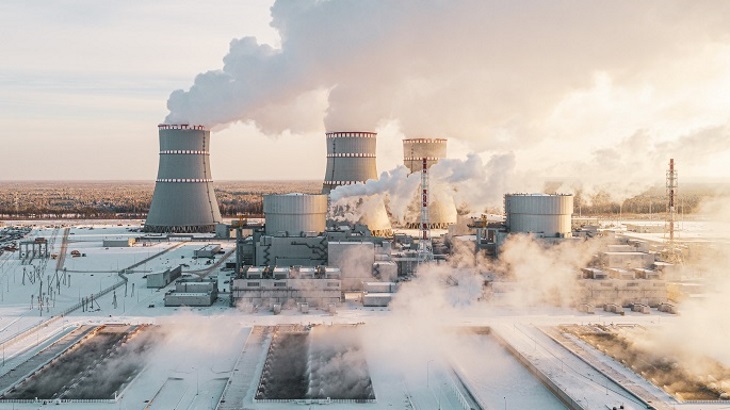Leningrad II-2 achieves 1 TWh milestone
Unit 2 of the Leningrad II nuclear power plant in western Russia passed 1 terawatt hours of electricity production on 15 January, a milestone in its four months of pilot operation that started in November last year.

Leningrad II nuclear power plant (Image: Rosatom)
"To date, the power unit has successfully operated for 85 days at different power levels," said Alexander Belyaev, chief engineer of Leningrad Nuclear Power Plant II. "During that time, a series of tests and inspections for 40%, 50%, 75% and 90% of the capacity have confirmed the reliable, efficient and - most importantly - safe operation of the unit in different operating conditions," he added.
Testing at 100% power capacity and almost 75% of thermal energy are now being conducted at the unit.
"The first billion kilowatt hours is, of course, an important, but a normal event for us in that it shows the unit is at the finish line and is fully ready to fulfill its main task - the production of electric and thermal energy, which will enable the continued implementation of a number of large regional investment projects requiring significant energy consumption in Northwest Russia," Belyaev said.
After the completion of pilot operation, the unit will be stopped for inspection of its equipment and, following regulatory approval, will then be put into industrial operation, which is scheduled for March.
The existing Leningrad plant site in Sosnovy Bor has four RBMK-1000 units, while Leningrad II will have four VVER-1200 units. Leningrad unit 1 was shut down for decommissioning on 21 December 2018. Leningrad II unit 1 was connected to the grid on 9 March 2018, becoming the second VVER-1200 reactor to start up, following the launch in 2016 of Novovoronezh unit 6. Leningrad II-2 will replace Leningrad-2, which was shut down permanently on 10 November 2020 after 45 years of operation.
The Leningrad II project will ensure the Leningrad plant maintains its status as Russia's biggest nuclear power plant, Belyaev said.
Researched and written by World Nuclear News
- China Institute of Atomic Energy
- Nuclear Power Institute of China
- Southwestern Institute of Physics
- China Nuclear Power Operation Technology Corporation, Ltd.
- China Nuclear Power Engineering Co., Ltd.
- China Institute for Radiation Protection
- Beijing Research Institute of Uranium Geology (BRIUG)
- China Institute of Nuclear Industry Strategy (CINIS)
- China Nuclear Mining Science and Technology Corporation


